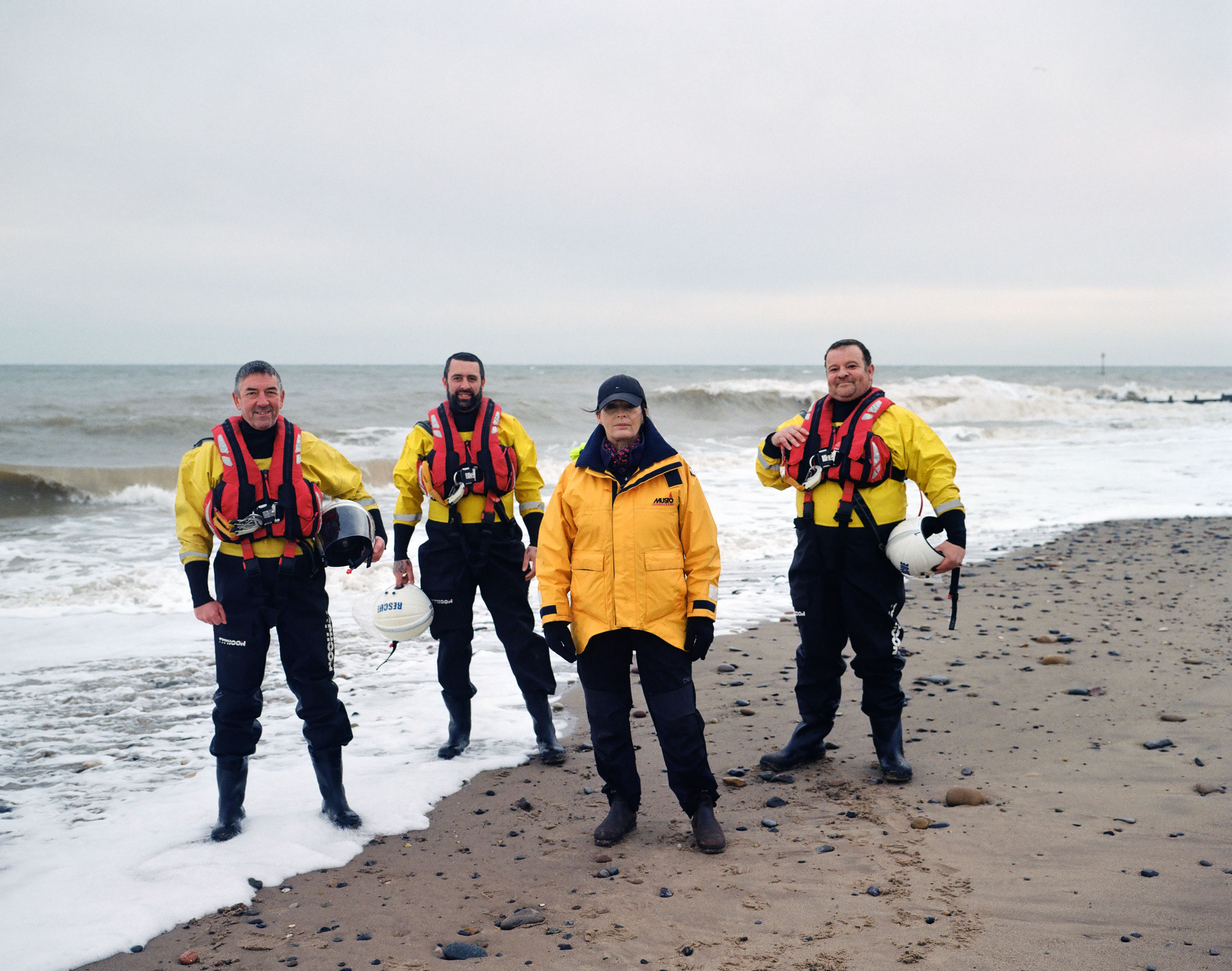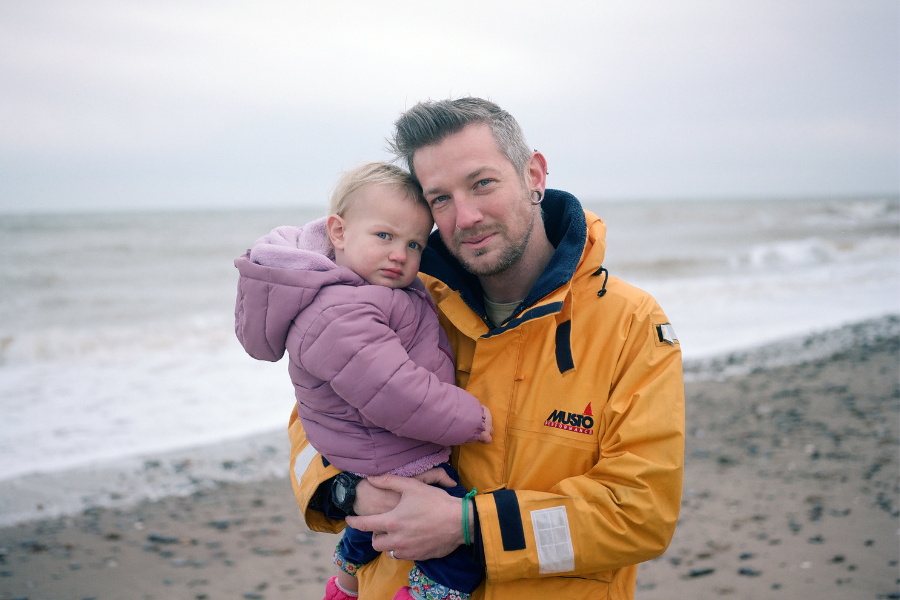Joanne Coates writes about her project Hold the Line, a socially engaged photographic work, exploring the heritage of fishing heritage, and the future of renewable energy with the communities on Europe’s fastest eroding coastline: The Holderness Coast.
My name is Jo. I’m an artist and photographer working on a project with Sustainability First and National Grid. I grew up with a grandad as a fisherman on the North Yorkshire coast so my connection to the sea was always strong. In my work I usually take walks; I get to know a place this way. The work is a combination of community informed work and personal practice. I do workshops with the community and learn about the area from them. Their answers and what we make informs the photographs I go on to make.
For Hold the Line, I am examining the environment in the villages and hamlets just beyond Hull. The work will increase awareness of the coastal erosion and landslides happening in these peripheral areas.

Joanne Coates, Hold the Line, (work in progress), 2023
For this residency I worked along the Holderness coast in East Yorkshire. From the more resistant limestone at Flamborough to the soft clay of Mappleton and Hornsea, to Spurn point at Easington at the southern headland of the Holderness Coast. It marks the point at which the southwards traveling sand, derived from the erosion of the cliffs, moves offshore. This is a result of a combination of the change in the direction, both of the coast, at this geographical point and of the tidal currents, the latter caused by the interaction of tides in the North Sea and those within the Humber estuary.
The challenge for me of this residency echoes the challenge that the Holderness coast faces. The studio I worked from was called Juice, in Hull. I could meet many artists working in the area but (in practice) Hull is hard to get to for many of the communities, making it harder to work with and reach communities along the coast. As the crow flies, the miles are small, but on narrow coastal roads, distances are great. The way the communities are isolated means they are separated both from each other and from resources. All along the coast we see wind farms and renewable energy projects in development but these communities feel left behind.
Identity
I made posters during my residency and left them in key community centres. I posed questions to groups: Has the sea shaped who you are? How does the sea impact your identity? I asked community groups to make art about what it means to have a coastal heritage but also what it means to be connected to the sea. I collected coastal memories via audio recordings, and through any photos of the past locals might have. I hosted drop-in sessions with groups, doing collage workshops, talking about living along the coast, talking about the future and the past, and doing photography workshops. As a visual artist, the workshops and sessions have a huge impact on what is eventually made.

Joanne Coates, Hold the Line, (work in progress), 2023
I met with those working in the renewable energy sector to talk about the work they do; with fishermen; with the Hornsea Inshore rescue making portraits with members. All of these meetings - workshops and drop-in sessions really impacted the work I was making.
The work made with my co-creators will be shown alongside the ongoing work I am making around the issues of climate, rising sea levels, and coastal erosion. I will make an installation and curate the work into a piece that will be a joint show. The sense of place that has come out in what people were making was clear. Themes of globalism, power, and energy all came out both in the work and discussions.
Read more about the North Sea residencies here and to see more of Jo’s work, visit her website or Instagram: joannecoates_
Jo is founder of Lens Think: a Social Enterprise based in Yorkshire and the North East giving opportunities and access for marginalised groups to develop photography in the North of England.

